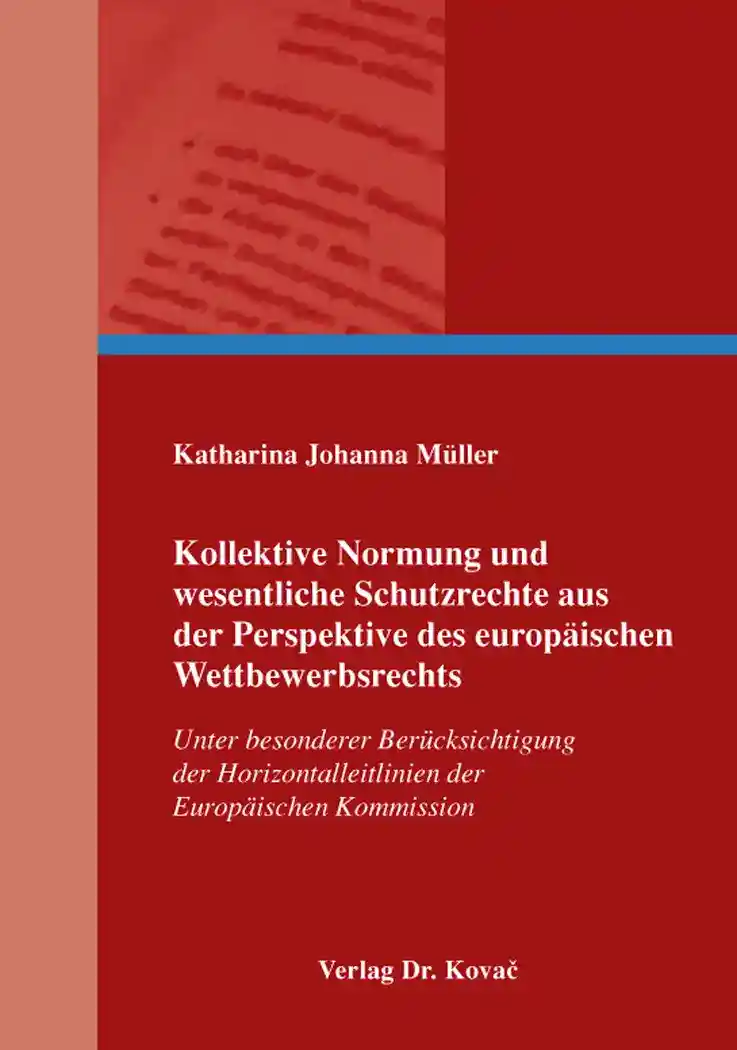Katharina Johanna MüllerKollektive Normung und wesentliche Schutzrechte aus der Perspektive des europäischen Wettbewerbsrechts
Unter besonderer Berücksichtigung der Horizontalleitlinien der Europäischen Kommission
Studienreihe wirtschaftsrechtliche Forschungsergebnisse, volume 192
Hamburg 2015, 356 pages
ISBN 978-3-8300-8104-3 (print)
ISBN 978-3-339-08104-9 (eBook)
About this book deutschenglish
Collectively developed standards, standard essential patents (SEPs) and competition law have become an increasing focus of legal policy discussions as a result of the ‘patent war’ that is currently dominating the mobile telephony sector. The author takes this development as an opportunity to examine the role of the different instruments of IPR policies in ex-ante minimization of competition law risks. The European standards organization ETSI (European Telecommunication Standards Institute) serves as an example. The legal evaluation of a FRAND commitment is the author’s focus in this context. Antitrust concerns under Art. 101 TFEU arise with regard to the interaction and exchange of information between undertakings which are, horizontally or vertically, in competition outside of standardization activity. The following aspects are examined in particular: Which behaviour is to be qualified as an agreement and concerted practice? Which restrictions of competition arise that are relevant to standardization? Is the ‘safe harbour’ concept of the European Commission convincing? The author emphasizes the analysis of competition law questions according to Art. 102 TFEU. Each holder of an SEP has a ‘key’ for the application of a proprietary standard, through which he is able to control the activities on the downstream markets. Against this backdrop, the author examines abusive practices in the standardization context. A crucial aspect in this context is how FRAND commitments can affect the abuse criteria. Of particular relevance is the question under which specific circumstances the seeking of injunctive relief before courts of Member States on the basis of a standard essential and “FRAND-burdened” intellectual property right may constitute an abuse of a dominant position. The author assesses inter alia the Commission’s antitrust proceedings against Samsung and Motorola as well as the German case law concerning the enforcement of the objection of compulsory license under antitrust law. On this basis, specific criteria are developed for the identification of this new type of abusive behaviour.Keywords
Europäische MissbrauchskontrolleEuropäisches KartellverbotFRAND-ErklärungIPR-PoliciesKartellrechtlicher ZwagslizenzeinwandKollektive NormungNew ApproachProprietäre NormenUnterlassensanspruchWesentliche SchutzrechteWettbewerbsrechtYour book at Dr. Kovač Publishing House
We publish your doctoral thesis >>
